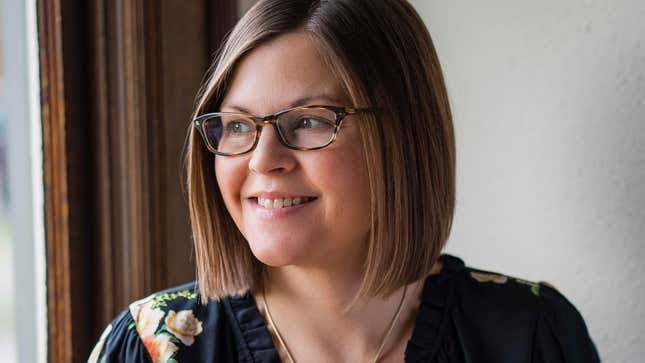What an Author Who Wrote About a Civilization-Threatening Illness Knows About Surviving a Pandemic
In Depth

Life feels kind of like a Karen Thompson Walker novel right now—specifically, the author’s novel The Dreamers, in which a mysterious sleeping disease tears through a small California community. Quarantine life, makeshift hospitals, having to visit with sick family members through glass—elements of our global reality that were practically unfathomable to most of us when the book was released in early 2019—feature heavily in her story about coping in a time of societal collapse. Her 2012 novel The Age of Miracles took a similarly human approach to the beginning of the end of the world, albeit within a much different premise (in that one, the Earth’s rotation slowed so that the days grew longer and ecological devastation ensued).
Walker is no soothsayer, but a well-researched author interested in the practical implications of apocalyptic scenarios within her literary approach to sci-fi. I thought it would be useful to check in with her regarding how she’s coping in a coronavirus-ravaged world, and what she makes of the similarities between what she wrote and how we’re living now. (Previously, I interviewed her around release of The Dreamers.) I called her last Wednesday at her house in Portland, which she says was essentially (though not quite officially) on lockdown. She said she’d seen a drastic change in her immediate neighborhood as the city has sent the message to its citizens to stay home and stay healthy. The transcript of our conversation below was edited for length and clarity.
JEZEBEL: How are you feeling?
KAREN THOMPSON WALKER: I feel differently at different times. There have been a lot of times that I’ve felt just very grim. When I was writing The Dreamers, I don’t think I thought so much about the collateral consequences of something like this. That wasn’t my focus in that book. Just the feeling of what it would be like to separate yourself from your community, that has been so intense, and especially the feeling of an indefinite amount of time, it just runs counter to a major part of our humanity. At the moment I feel really focused on, in addition to the people suffering on the virus itself, how much collateral suffering is happening as a result of what we’re trying to do to stop it.
The other thing I’ve thought a lot about is that I made a deliberate choice when I was writing my book to keep the virus contained in this one town. I did that on purpose, because I wanted to focus on the relationships in this certain group of people. It just felt like the story would get out of hand if I had it be a pandemic. I just have been thinking about that a lot. It’s so appealing [to think about] if [coronavirus] had been contained in one town, but obviously so unrealistic in this case.
Did you research the Spanish flu of 1918 when preparing to write The Dreamers?
I did. I specifically wanted to write about something that was not from reality, but I did to try to understand how really contagious diseases spread and society’s response to it. I did a lot of research on various outbreaks and pandemics, and the 1918 flu was one I did quite a bit of research on. There’s an old PBS American Experience episode about the 1918 flu. It’s a very efficient and heartbreaking distillation of that event. I watched it as research and then the other night, I rewatched part of it with my husband, who hadn’t seen it before. It was eerie. There was something about visiting that time, and it was so terrible, but knowing that it passed into history…there’s something about that that’s appealing at this moment. I’ve been finding it hard to remember that whatever happens, this is not forever.
I’ve been finding it hard to remember that whatever happens, this is not forever.
My fear is what happens as a result of the virus when it finally does pass. What will we not get back? In my head sometimes, I wonder, “Is this the beginning of the end of the world?” Do you think being informed about the 1918 flu, for example, has been useful or inhibiting beyond the example you just gave?
I don’t know. I think both. Through the research I did, I learned about how bad a pandemic could be, but I was very fixated on the fatality rate. The 1918 flu had a really bad fatality rate. But in this case—and this is clearly not medical expertise of mine—it feels like what’s so bad about this is how contagious it is, how many deaths there could be in such a short amount of time. It’s kind of a specific terrible thing that I was not as well versed in. At the beginning, when they were showing the fatality rates, it was like, “Oh that does seem really serious, but it’s not the same rate as the 1918 flu or SARS or MURS.” But that turned out to be not that relevant, because the big problem is how many people could get it in such a short period of time. So sometimes it has been helpful, and other times not.
-

-

-

-

-

-

-

-

-

-

-

-

-

-

-

-

-

-

-

-

-

-

-

-

-

-

-

-

-

-

-

-

-

-

-

-

-

-

-

-








































